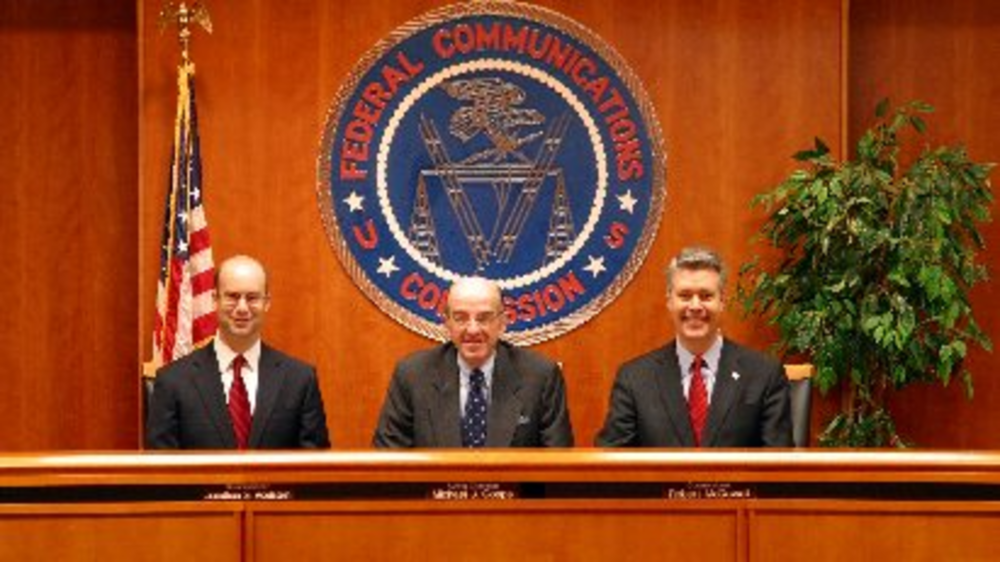Armed with a White House mandate and stimulus funds, the Federal Communications Commission launched its effort last week to encourage the expansion of high-speed Internet connections in the country — a move some experts say will help marketers expand multichannel reach.
The FCC was ordered to create such a plan as part of the economic stimulus package passed this year. The $787 billion government stimulus package includes $7.2 billion in infrastructure to provide broadband access to all Americans, one of President Barack Obama’s stated goals.
The government is requiring the FCC to provide a road map for how this can be accomplished, and the agency’s plan is due by next February.
Currently, broadband funding and the rules for implementing the service are spread between three government agencies: the FCC, the National Telecommunications and Information Administration, and the US Department of Agriculture.
The initiative will help direct marketers reach some consumers in new ways, said Jerry Cerasale, SVP of government affairs for the Direct Marketing Association.
“I think that we’ve always been in favor of trying to expand Internet access and broadband access because you want to reach people with as many channels as possible,” he said. “Lots of things are happening with direct marketers being more multichannel, like merging catalogs with Web sites, and this will allow marketers to expand that multichannel reach.”
One of the FCC’s goals was to bring broadband access to underserved places, such as rural areas. Those rural residents have long been a prime demographic for direct marketers, Cerasale said.
“[Rural areas] are where direct marketers may have the best audience,” he said. “They may not be close to department stores and specialty stores.”
Among the issues the FCC will examine are: the most effective and efficient ways to ensure broadband access for all Americans; strategies to achieve affordability and maximum use of broadband infrastructure and services; the status of broadband deployment, including the progress of related grant programs; and how to use broadband to advance consumer welfare, civic participation, public safety and homeland security, community development, health care delivery, and other national purposes, the agency said.
“This Commission has never, I believe, received a more serious charge than the one to spearhead development of a national broadband plan,” said FCC acting chairman Michael Copps, in an April 8 statement, as the agency opened up the process to public comment. “Broadband can be the great enabler that restores America’s economic well-being and opens doors of opportunity for all Americans to pass through, no matter who they are, where they live, or the particular circumstances of their individual lives.”
Some telecommunications companies have begun weighing in on how the plan can best be implemented.
In an e-mail to DMNews, the National Cable & Telecommunications Association (NCTA) said that the stimulus programs should be used to help bring broadband to the small percentage of the nation’s homes with no physical access to the service, and overcome other barriers to adoption — such as affordability, the lack of a computer or other equipment needed to connect to the Internet, and low levels of basic “digital literacy.”
The NCTA said that bids to provide these services should be competitively and technologically neutral so as not to “create disincentives to private investment that necessarily will continue to take the lead in broadband deployment.” It further said that “value-producing projects” that can be implemented quickly should receive the highest priority.
NCTA also said that funding should be deployed in a manner that will not harm the existing broadband industry.
Major telecom companies, like Verizon Inc., also have weighed in on the matter.
“Given its importance to economic growth, job creation and international competitiveness, creating a climate for investment in advanced broadband networks should be job one at the FCC,” said Susanne Guyer, Verizon SVP of federal regulatory affairs, in a statement following the FCC’s announcement. “Through this plan, the FCC can take a major step toward ensuring that all Americans have access to broadband networks and have the skills and devices necessary to access the economic and social benefits available through broadband connections. We look forward to working with the FCC to achieve this important goal.”








